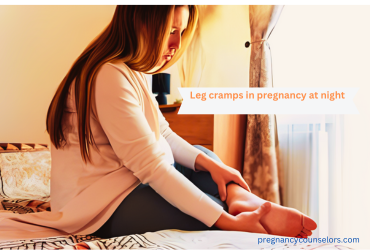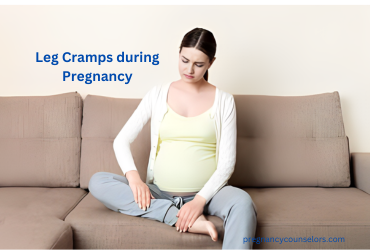Introduction
Pregnancy is a beautiful journey but it also comes with a number of difficulties and bodily changes. Leg cramps are a normal pain that many pregnant women feel. Leg Cramps during Pregnancy are painful and challenging, interfering with everyday activities and sleep. It is important to understand causes, measures to avoid them, and management strategies to ensure a more pleasant pregnancy experience.
Understanding Leg Cramps during Pregnancy
Charley horses, is another name for leg cramps, they are sudden, uncontrollable contractions of the muscles. It can happen anywhere on the leg, but most often in the calf muscles. These cramps, which can last anywhere from a few seconds to several minutes and cause severe pain and suffering. Leg cramps in pregnancy at night time is a very common thing. Leg cramps can affect anyone, but upto 30% of pregnant women report having them at some point throughout their pregnancy.
Causes of Leg Cramps during Pregnancy
Leg pain during pregnancy second trimester and leg cramps during pregnancy third trimester is natural part of pregnancy journey. Leg cramps can occur during pregnancy for a number of reasons, including:
- Changes in Circulation:
The blood arteries and uterus grows to provide room for the developing fetus. This pressure might block blood flow, causing pain and cramping in the muscles.
- Mineral Imbalances:
Deficiencies of important minerals, like calcium, magnesium, and potassium, which are critical for muscular function, is common in pregnant women. Leg cramps may become more likely if certain nutrients are not present in sufficient amounts.
- Hormonal Changes:
Changes in progesterone levels, in particular, during pregnancy has an impact on muscular tone and increase cramping in the muscles.
- Fluid Retention:
Swelling and fluid retention are common in pregnant women, particularly in the legs and feet. Leg cramps may get caused by the extra fluid compressing blood vessels and nerves.

Prevention Strategies for Leg Cramps
Knowing leg cramps during pregnancy reason helps to create strategy for avoiding it. Although it may become difficult to totally avoid it. Pregnant women can use several methods to reduce their frequency:
- Stay Hydrated:
Maintaining electrolyte balance and avoiding muscular cramps require enough hydration. Drinking ample water throughout day is good for pregnant women, especially in hot weather and when engaging in physical exercise.
- Maintain Proper Nutrition:
Leg cramps can get avoided by eating a balanced diet high in calcium, magnesium, potassium, and other vital nutrients. Mineral deficiencies can also get avoided by avoiding certain foods. Foods like leafy greens, dairy, almonds, seeds, and bananas can help maintain the health of your muscles. Proper nutrition is one of the best home remedies for leg cramps during pregnancy.
- Stretching Exercises:
Mild stretches that focus on the hamstrings and calves can ease tense muscles and lessen the incidence of leg cramps. Regularly performing easy stretches, particularly right before bed, might help you relax and avoid cramps.
- Supportive Footwear:
Leg cramps may get prevented by wearing supportive, comfortable shoes with enough arch support. As that eases the tension on the feet and lower legs.
- Elevate Legs:
Leg elevation can help reduce the incidence of leg cramps. By increasing circulation and reducing swelling, especially after long periods of standing or sitting.
- Massage and Warm Baths:
Leg cramp pain gets reduced by relaxing tense muscles with a gentle massage and a warm bath. To promote muscle relaxation, adding Epsom salts to the bathwater might add more magnesium.
Managing Leg Cramps When They Occur
During pregnancy leg cramps might still happen even with precautions. Pregnant women can use a few techniques to reduce pain and discomfort when they get a leg cramp:
- Stretching:
Stretching that affected muscle gently might help release tension and encourage relaxation when a leg cramp occurs. Extending legs and bending the foot upward towards the shin are two useful ways to loosen cramp. And to stretch the calf muscles too.
- Massage:
Applying a little circular massage to cramped muscle can help improve blood flow and reduce tenseness in affected area. Another way to relieve the affected region is to apply moderate pressure to it.
- Heat or Cold Therapy:
Warm compresses or heating pads can get used for easing discomfort and relax tense muscles in constricted muscles. As an alternative, freezing and reducing inflammation can happen by using an ice pack covered in a cloth.
- Topical Painkillers:
When applied to affected area, topical painkiller lotions/ointments with substances like menthol or capsaicin might temporarily relieve muscle cramps.
- Stay Calm and Breathe:
To help the muscles relax during a leg cramp, it’s important to maintain your composure and take deep breaths. Tensing up or worrying can make the cramp worse and last longer.
When to Seek Medical Attention
Leg cramps occuring during pregnancy are usually harmless. But in some cases, they are a sign of an underlying medical condition or require medical care:
- Persistent or Severe Cramps:
See a doctor to rule out any underlying problems if leg cramps remain severe.
- Swelling or Redness:
If there is any swelling, redness/warmth in leg that is experiencing the cramp, it indicates Deep Vein Thrombosis (DVT). It is a potentially dangerous condition that has to get treated right away.
- Numbness or Tingling:
When numbness, tingling, or weakness happens along with leg cramps. It may be sign of nerve compression or other neurological problems that need to get checked out by medical practitioner.
- Signs of Preterm Labor:
Leg cramps that are severe or persistent may indicate premature labor in certain situations. Women who are expecting child and are suffering frequent contractions, abdominal pain, vaginal bleeding, or fluid leaking should contact doctor.
Conclusion
Many pregnant women frequently feel leg Cramps during pregnancy. They typically come up with hormonal fluctuations, changes in circulation, mineral imbalances, and fluid retention. Stretching exercises, eating healthy diet, and staying hydrated are preventive measures that help reduce likelihood of these uncomfortable injuries. Pregnant women can experience more comfortable and easy pregnancy by being aware of the causes and using practical management measures.
Frequently asked questions
Q1: What can I eat for leg cramps during pregnancy?
Ans: Supplements containing vitamin B complex are helpful for leg cramps. Consume foods high in potassium, magnesium, and calcium.
Q2: What drink stops leg cramps?
Ans: Quinine relaxes muscles, and is a treatment for leg cramps. It helps in lessening the frequency and force of cramp-causing muscular cramps.

